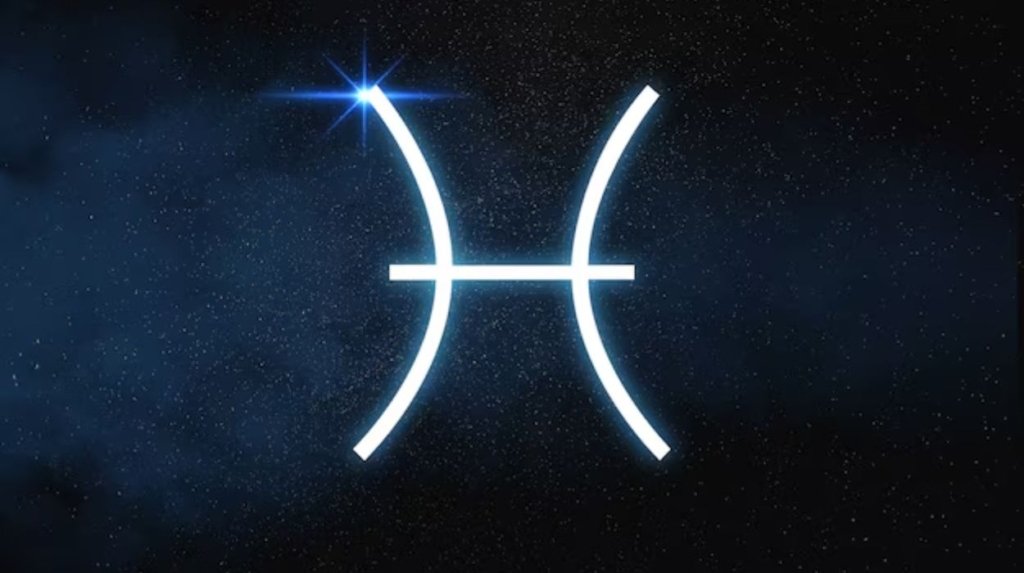Taking a break in a relationship can often be a perplexing notion, especially when it comes to deciphering what it truly signifies for each individual involved, especially when you’re at the receiving end of such a decision. If the man you have been with has expressed his desire to temporarily step back, you must be asking yourself, “What does taking a break mean to a guy?”
As a guy who once initiated the suggestion of taking a break, I understand first-hand the complexities and uncertainties that surround this decision. For me, taking a break meant stepping back from the intensity of the relationship, allowing some breathing room to reassess priorities, personal growth, and the dynamics of our partnership. In my experience, suggesting a break wasn’t a means of seeking freedom or an excuse for avoiding commitment. Rather, it was a genuine attempt to address underlying issues that were causing strain and to cultivate a healthier relationship in the long run.
Taking a break allowed for introspection, fostering a space where both parties could reflect on their needs, desires, and the future trajectory of the relationship. First of all, rest easy. Taking a break isn’t always as ominous as it sounds. So, what does it mean? Let’s find out, and in the process, address some vital questions: What is a break in a relationship? What does it mean if your partner wants a break? Do relationship breaks work? And how does one deal with it?
What Does Taking A Break Mean To A Guy? 5 Possible Explanations
To understand what taking a break truly signifies to men, we delve into a realm of diverse interpretations and personal motivations. In this section, we explore five possible explanations behind a guy’s suggestion to take a break in a relationship, shedding light on the intricacies of a guy’s perspectives when it comes to this delicate decision. From seeking self-reflection to addressing relationship dynamics and everything in between, understanding these facets can illuminate the path to navigating this pivotal juncture in any partnership.
1. Space for reflection and self-discovery
What does taking a break mean to a guy? Taking a break could signify a need for introspection and self-discovery. It may be a time for a guy to reassess his feelings, personal goals, and individual identity within the relationship. If you’re thinking, “My boyfriend wants a break but still loves me”, then this might be a good sign for the relationship.
2. Addressing relationship issues
Sometimes, taking a break in a relationship is a way for a guy to address underlying issues within the relationship without the pressure of constant interaction. It could be an opportunity to fix a lack of communication, work on trust, or address compatibility concerns.
3. Recharging and regaining perspective
What is a break in a relationship? In certain cases, a guy might suggest a break as a means of regaining perspective and emotional balance to figure things out for himself. It could be a chance to recharge mentally and emotionally, away from the daily pressures of a committed relationship.
Related Reading: How To Deal With Taking A Break In A Relationship – 7 Rules
4. Testing compatibility and commitment
What does taking a break mean to a guy? Taking a break might serve as a test of compatibility and commitment for some guys to see whether or not you’re on the same page. It allows them to gauge whether the relationship is strong enough to withstand challenges or if it’s better to part ways.
5. Avoiding conflict or pressure
In more difficult situations, taking a break might be a way for a guy to avoid confrontation or the pressure of making immediate decisions when he is not ready to commit. It could offer a reprieve from tension or disagreements within the relationship.
As we learn the possible answers to the question — What is a break in a relationship? — from a guy’s perspective, it naturally leads us to ponder: Do breaks actually work? In the following section, we delve deeper into the dynamics of breaks, exploring their potential benefits, pitfalls, and the factors that contribute to their success or failure. By examining real-life experiences and expert insights, we aim to gain a better understanding of whether taking a break truly serves as a viable solution for strengthening or salvaging a relationship.
Related Reading: Why Do Guys Pull Away Before They Commit?
Do Relationship Breaks Work?
The effectiveness of breaks in a long-term relationship is a topic of considerable debate and speculation. While some couples view taking a break as a necessary step toward healthy conflict resolution and improving communication, others approach it with skepticism, questioning its ability to address underlying issues or strengthen the bond between partners. The answer to the question — Do relationship breaks work? — often hinges on various factors, such as,
- The intentions behind the decision
- The level of commitment from both partners
- The clarity of boundaries established during the break period
As one Reddit user says, “Sometimes there are toxic or unhealthy patterns in a relationship. Even if you love each other. Time apart can help identify and work through those separately so people can come back together in a healthy way and break out of old patterns. Time apart can also help distinguish what is a “me” problem from an “us” problem. That can then help the individual do the self-work needed for the work together.
Related Reading: 15 Ways To Solve Relationship Problems Without Breaking Up
“If you want to separate with the intention of HELPING the relationship and NOT ending it, it’s important to have rules and a clear understanding of what the separation is and isn’t. Personally, I think if one person wants to date around during the separation it is time to make the separation permanent.”
So, can time apart help a relationship? Well, communication, trust, and mutual respect play pivotal roles in determining whether a break leads to reconciliation or ultimately marks the end of the relationship. Exploring the experiences of different couples and considering expert opinions can offer valuable insights into the question — Can time apart help a relationship? — and the strategies for navigating these breaks successfully.

Pros and cons of taking a break in a relationship
If you’re confused by the dichotomy of, “My boyfriend wants a break but still loves me”, or scared about the ramifications of hitting pause on your relationship, it might help to weigh the pros and cons of taking a break. The decision to take a break is often met with a mix of hope and trepidation. While it can offer valuable space for reflection, personal growth, and the resolution of conflicts, it also comes with its own set of challenges and uncertainties.
In my own experience with taking a break, it provided valuable space for reflection and introspection. It allowed both my partner and me to step back from the intensity of our relationship and gain clarity on our individual needs, desires, and priorities. However, it’s essential to acknowledge the potential drawbacks of taking a break as well. Uncertainty and anxiety about the future of the relationship can arise during this time, leading to heightened emotional stress for both partners.
Related Reading: 5 Reasons Why Space In Relationships is not An Ominous Sign
Despite these challenges, the decision to take a break can ultimately be a positive step toward fostering growth and understanding within the relationship. By approaching it with open communication, mutual respect, and a commitment to personal and relational growth, couples can navigate the complexities of a break with grace and resilience, emerging stronger and more aligned with their goals and values.
In this section, we explore the potential pros and cons of taking a break, shedding light on the complexities and nuances of this pivotal decision. By examining both sides of the question — do relationship breaks work? — we aim to provide insight and guidance for couples considering or navigating a break, empowering them to make informed choices about the future of their relationship.
| Pros | Cons |
| 1. Space for reflection: Allows both partners to step back and reflect on their feelings, needs, and priorities | 1. Uncertainty: Can create uncertainty and anxiety about the future of the relationship |
| 2. Time for personal growth: Offers an opportunity for personal growth and self-discovery outside of the relationship | 2. Communication challenges: May lead to communication problems or misunderstandings if boundaries and expectations are not clearly defined |
| 3. Addressing issues: Provides a chance to address underlying issues or conflicts without the pressure of constant interaction | 3. Risk of drifting apart: There’s a risk that partners may drift apart or grow accustomed to being apart, leading to further distance in the relationship |
| 4. Rekindling desire: Can reignite desire and passion as partners miss each other and appreciate what they bring to the relationship | 4. Jealousy and insecurity: May trigger feelings of jealousy or insecurity if one partner suspects the other of seeing someone else during the break |
| 5. Clarity and perspective: Offers clarity and perspective on the relationship, helping both partners determine if they want to continue or move on | 5. Risk of permanent separation: There’s a possibility that the break could lead to permanent separation if the issues cannot be resolved or if one or both partners realize they are better off apart |
Related Reading: 12 Ways To Fix A Strained Relationship
How long should a break in a relationship be?
The duration of a break is highly subjective and can vary depending on the specific circumstances and needs of the individuals involved. There is no one-size-fits-all answer to this question, as the length of a break should be determined collaboratively by both partners and tailored to suit their unique situation.
Many couples find that a short break of a few days or up to three weeks is sufficient to gain clarity, recharge, and address immediate concerns, while others may require a longer period of several months to reassess their priorities, work through significant issues, or focus on personal growth.
A Reddit user says, “My partner and I took an 8-month long break. When we got together the first time, we were both suffering from severe, untreated mental illnesses and had just gotten out of toxic relationships. We tried to date but agreed that it was a right person, wrong time situation. We loved each other a lot, but we knew that if we wanted a shot at a healthy relationship, we needed to separate and figure out who we were as people first.”
I have discovered the virtue of patience and I don’t quite believe that taking a break for good reason can be a risk.
Dia Mirza
Both partners must communicate openly and establish clear expectations including whether there is a specific timeline or if the break will be open-ended. That’s the only way to answer the question, how long should a break in a relationship be? In addition to this, regularly revisiting and reassessing the terms of the break can help ensure that both partners feel respected, heard, and aligned with their goals.
The bottom line is the answer to the question, how long should a break in a relationship be, should be guided by mutual agreement, flexibility, and a commitment to prioritizing the well-being and growth of both individuals and the relationship itself.
Related Reading: Fixing a Toxic Relationship – 21 Ways To Heal TOGETHER
What To Do When Your Boyfriend Wants A Break — 7 Tips
When faced with the disconcerting prospect of your partner/boyfriend suggesting a break, dealing with the tumultuous emotions and uncertainties can feel overwhelming. In this section, we offer seven insightful tips to help you navigate this challenging situation with grace, resilience, and self-assurance.
From fostering open communication to learning how to give space in a relationship, these strategies are designed to empower you to navigate the complexities of a break with clarity and confidence. Whether you’re seeking reconciliation or preparing for a new chapter, these tips provide valuable guidance to help you navigate this pivotal moment in your relationship journey.

1. Be open and honest with each other
In times of uncertainty and emotional upheaval, initiating an open and honest dialogue with your partner is paramount. Encourage a safe space for emotional vulnerability where both of you can express your thoughts, concerns, and feelings without fear of judgment or reproach. Listen attentively to the reasons why your boyfriend wants a break, seeking to understand the underlying motivations behind his decision.
Similarly, share your own emotions and perspectives openly, fostering mutual empathy and clarity. When you communicate better with your partner, you can tackle the complexities of a break with respect, understanding, and the potential for mutual growth.
Related Reading: On-Again-Off-Again Relationships – How To Break The Cycle
2. Respect his decision
While it may be challenging to come to terms with the fact that your boyfriend wants a break, demonstrating respect for his decision is crucial. Here’s how you can do this:
- Understand that this decision likely wasn’t made lightly and may reflect his own need for space, introspection, or resolution
- If he wants a break, avoid pressuring him to stay in the relationship or attempting to dissuade him from taking a break, as this could exacerbate tensions and strain the connection further
- Instead, affirm your willingness to honor his needs and respect his autonomy, even if it means temporarily stepping back from the relationship
By showing understanding and acceptance of his decision, and by learning how to nurture space in a relationship, you lay the groundwork for fostering trust and cooperation during this difficult period.
Related Reading: 21 Elements Of Developing Respect In A Relationship
3. Establish clear boundaries
As you deal with the complexities of a break, it’s essential to establish clear boundaries to guide your interactions and expectations. Sit down with your boyfriend to discuss and define the parameters of the break, including communication protocols, the duration of the break, and any agreed-upon ground rules on seeing other people.
Building healthy boundaries helps to prevent misunderstandings, minimize hurt feelings, and maintain a sense of respect and trust between both parties as you figure out how to give space in a relationship. Additionally, clearly outlining expectations can provide a sense of structure and stability during this uncertain time, fostering a more constructive and manageable break experience for both you and your boyfriend.
Sometimes, taking a break and going somewhere else and, almost, for both parties, absence makes the heart grow fonder.
Edge
4. Remember to take care of yourself
Amidst the emotional turmoil of a break, prioritizing self-care and well-being becomes paramount. Here are some tips on how you can do this:
- Redirect your energy toward activities and practices that nourish your physical, emotional, and mental health and well-being
- Engage in hobbies and interests that bring you joy and fulfillment, whether it’s painting, hiking, or simply indulging in your favorite book
- Set ground rules for yourself and prioritize self-reflection and introspection, allowing yourself the space to process your emotions and gain clarity about your own needs and desires
- Remember to practice self-compassion and kindness toward yourself during this challenging time, acknowledging that healing and growth are gradual processes that require patience and self-nurturing
By prioritizing self-care, you empower yourself to navigate the break with resilience, strength, and a renewed sense of self-worth.
Related Reading: Do you need a relationship break? 15 signs that say you do!
5. Reflect on the relationship
If he wants a break, take it as an opportunity for introspection and reflection on the dynamics of your relationship. Take time to examine both the positive aspects and challenges you’ve encountered together, gaining insights into the strengths and weaknesses of your connection. Use the alone time to reflect on your individual needs, values, and aspirations within the relationship, considering whether they align with your boyfriend’s. Evaluate any patterns of communication, conflict resolution, or compatibility issues that may have contributed to the need for a break.
Spending time reflecting allows you to gain clarity about your expectations for the relationship and whether it holds the potential for long-term compatibility and fulfillment. By engaging in honest self-reflection, you equip yourself with the self-awareness and understanding necessary to make informed decisions about the future of your relationship.


6. Seek emotional support
During times of emotional upheaval, it’s essential to lean on your support system for guidance and solace. Here are some tips on how you can get support:
- Reach out to trusted friends, family members, or a therapist who can offer empathetic listening, perspective, and encouragement
- Share your thoughts and feelings openly with those who care about your well-being, allowing yourself to be supported and uplifted during this challenging period for your mental health
- You could also consider joining support groups or online communities where you can connect with others who may be in a similar situation as yours
Seeking support not only provides emotional validation and comfort but also offers valuable insights and perspectives that can help you navigate the complexities of the break with resilience and strength.
Related Reading: 5 ways depression affects and destroys relationships
7. Prepare for various outcomes
While it’s natural to hope for reconciliation when taking a break in a relationship, it’s essential to prepare yourself for various potential outcomes. Acknowledge the uncertainty of the situation and recognize that the break may lead to either reconciliation or the end of the relationship. Embrace the possibility of growth and self-discovery, regardless of the outcome, recognizing that every experience holds valuable lessons and opportunities for personal development.
Stay open to the possibility of new beginnings and embrace the journey of self-exploration and healing, regardless of the path your relationship takes. By preparing yourself mentally and emotionally for different outcomes, you empower yourself to navigate the break with resilience, acceptance, and a sense of readiness for whatever the future may hold.
Frequently Asked Questions
1. Do guys usually come back after a break?
Whether a guy comes back after a break largely depends on the individual circumstances of the relationship and the motivations behind the break. While some couples may reconcile and emerge stronger from a break, others may ultimately choose to part ways permanently. Factors that can influence whether a guy comes back after a break include the clarity of communication during the break, the level of commitment and investment in the relationship, the resolution of underlying issues, and the compatibility and mutual willingness to work through challenges.
It’s essential to approach a break with realistic expectations and an open mind, recognizing that the outcome may vary for each couple. Ultimately, both partners must be willing to invest time, effort, and honesty into rebuilding trust and addressing any underlying issues if they hope to reconcile successfully. Regardless of the outcome, focusing on personal growth, self-care, and resilience can empower individuals to navigate the complexities of a break with grace and dignity.
Key Pointers
- When a guy suggests taking a break from a relationship, it could be for a variety of reasons—he may need space for reflection, he may want to address issues in the relationship, or may need to recharge and get a fresh perspective
- The success of a break hinges on various factors, including the intentions behind the decision, the level of commitment from both parties, and the clarity of boundaries established during the break period
- Things you should keep in mind when your boyfriend asks for a break include respecting his decision, being open and honest with each other, seeking emotional support, and more
Final Thoughts
Dealing with a break in your relationship, particularly when initiated by your boyfriend, is undoubtedly a challenging and emotionally charged experience. However, by implementing the strategies outlined above—fostering open communication, having healthy boundaries, prioritizing self-care, reflecting on the relationship, seeking support, and preparing for different outcomes—you equip yourself with the tools and resilience needed to navigate this turbulent period with grace and self-assurance.
Whether the break ends with reconciliation or marks the end of the whole relationship, remember that your well-being and personal growth remain paramount. Embrace this opportunity for self-discovery, healing, and empowerment, knowing that each step forward brings you closer to a future filled with authenticity, resilience, and the potential for lasting happiness in both love and life.
9 Signs It’s Time For Taking A Break In A Relationship
Expert Tips – How To Reconnect After A Relationship Break
Do you need a relationship break? 15 signs that say you do!
Share Feedback
Ask Our Expert
You must be Logged in to ask a question.


 Anal Beads
Anal Beads Anal Vibrators
Anal Vibrators Butt Plugs
Butt Plugs Prostate Massagers
Prostate Massagers
 Alien Dildos
Alien Dildos Realistic Dildos
Realistic Dildos
 Kegel Exercisers & Balls
Kegel Exercisers & Balls Classic Vibrating Eggs
Classic Vibrating Eggs Remote Vibrating Eggs
Remote Vibrating Eggs Vibrating Bullets
Vibrating Bullets
 Bullet Vibrators
Bullet Vibrators Classic Vibrators
Classic Vibrators Clitoral Vibrators
Clitoral Vibrators G-Spot Vibrators
G-Spot Vibrators Massage Wand Vibrators
Massage Wand Vibrators Rabbit Vibrators
Rabbit Vibrators Remote Vibrators
Remote Vibrators
 Pocket Stroker & Pussy Masturbators
Pocket Stroker & Pussy Masturbators Vibrating Masturbators
Vibrating Masturbators
 Cock Rings
Cock Rings Penis Pumps
Penis Pumps
 Wearable Vibrators
Wearable Vibrators Blindfolds, Masks & Gags
Blindfolds, Masks & Gags Bondage Kits
Bondage Kits Bondage Wear & Fetish Clothing
Bondage Wear & Fetish Clothing Restraints & Handcuffs
Restraints & Handcuffs Sex Swings
Sex Swings Ticklers, Paddles & Whips
Ticklers, Paddles & Whips




















